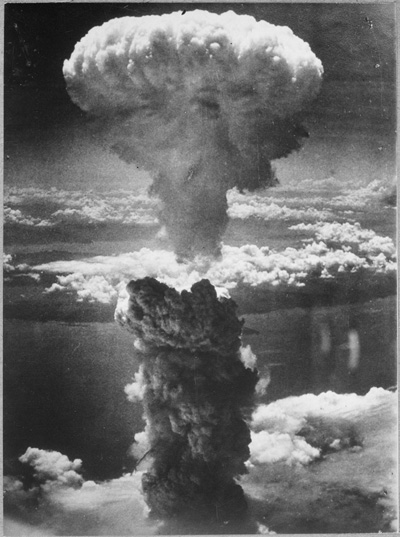Encyclopedia Dubuque
"Encyclopedia Dubuque is the online authority for all things Dubuque, written by the people who know the city best.”
Marshall Cohen—researcher and producer, CNN
Affiliated with the Local History Network of the State Historical Society of Iowa, and the Iowa Museum Association.
ATOMIC RESEARCH
ATOMIC RESEARCH. In May 1953 Arthur C. WHALEN, later a principal in the DUBUQUE COMMUNITY SCHOOL DISTRICT at Prescott, Lincoln, Sageville, and Keller schools, was one of the first five soldiers to enter Ground Zero, site of the first test firing of an atomic bomb in the Nevada desert west of Las Vegas. (1)
The soldiers entered the area of the blast minutes after the explosion of a 20 kiloton atomic bomb. Carefully monitoring radioactivity in the area, the soldiers marked areas too "hot" with tape. Soldiers following them were instructed to move forward to the right of the markings. (2)
In 1957 Dubuque was not one of the cities "hit" by hypothetical atomic bombs during Operation Alert. This was fortunate because the city did not have a Civil Defense director or a working disaster plan. In Operation Alert, Iowa Civil Defense headquarters in Des Moines received a call that enemy planes were sighted over Alaska. State headquarters phoned other cities in the state. At 11:15 a.m. sirens began blasting away and remained going for ten minutes.
City manager LaVerne Schiltz opened a letter at 1:00 p.m. which told him of "Dubuque's fate." (3) When it was learned that Dubuque was not "hit," the city was to assume a support role.
See: MARSHALLESE
---
Source:
1. Interview with Arthur Whalen, 1973
2. Ibid.
3. "Alert 'Bombs' Miss Dubuque," Telegraph Herald, September 12, 1957, p. 1


